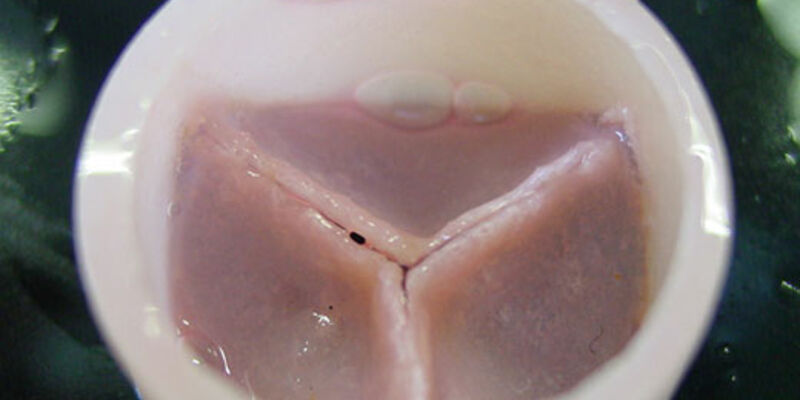
- Research
- 08/12/2014
Growing artificial heart valve may be reality
Xeltis, the Swiss company that took in TU/e spin-off QTIS/e, has raised 27 million euros from investors. The money enables clinical tests of growing artificial heart valves, developed by the company’s research department that’s still located on TU/e campus.
The medical solutions of Xeltis are based on the principle of ‘endogenous tissue growth’. A biodegradable mold is implanted, shaped like a heart valve in this particular case, which serves as a home for somatic cells. After a while, the mold itself degrades, leaving a fully-functioning heart valve.
The approach has the advantage that no foreign cells have to be implanted, as these may be rejected. And the heart valve grows as the body does, which obviously wouldn’t be the case for synthetic implants. The material of the implants is based on supra-molecular polymers that have been developed in the group of university professor Bert Meijer.
The full Xeltis R&D department, consisting of some fifteen people, resides in Catalyst on TU/e campus. The research department used to be TU/e spin-off QTIS/e, founded in 2007 by PhD graduates Mirjam Rubbens and Martijn Cox. The latter is currently Xeltis’ Chief Technology Officer.
The new financial injection, including investments by Dutch investment company Life Sciences Partners, and the French Kurma Partners, will be used for clinical trials testing the heart valves in humans. Xeltis also focuses on the implementation of endogenous tissue growth in blood vessels.
Discussion